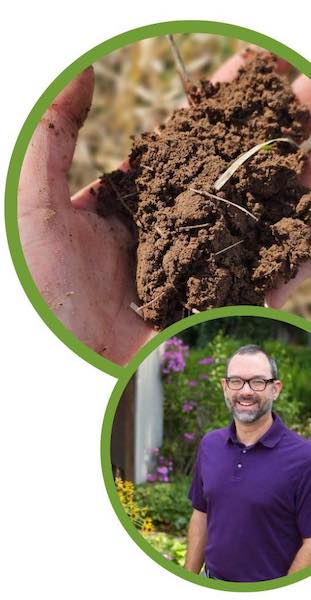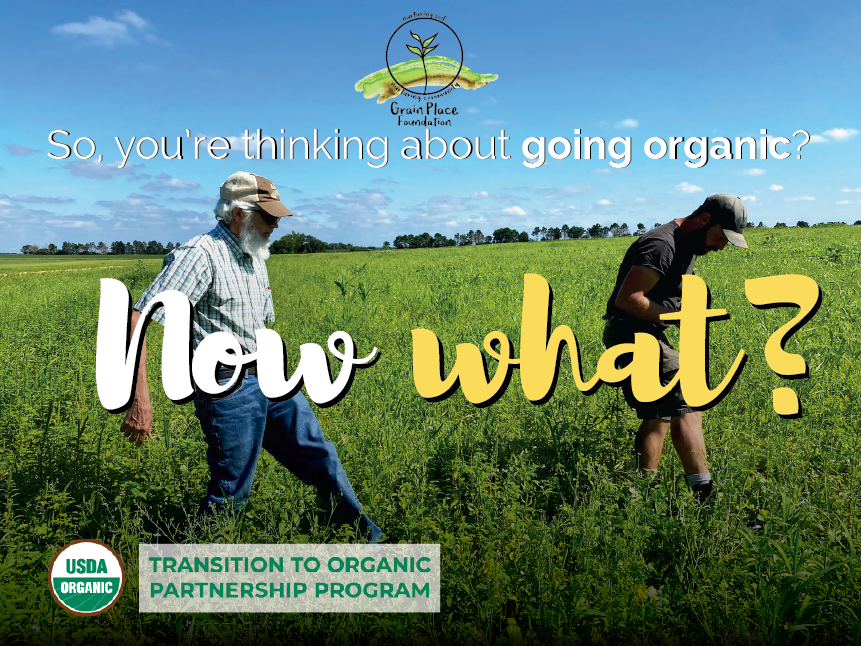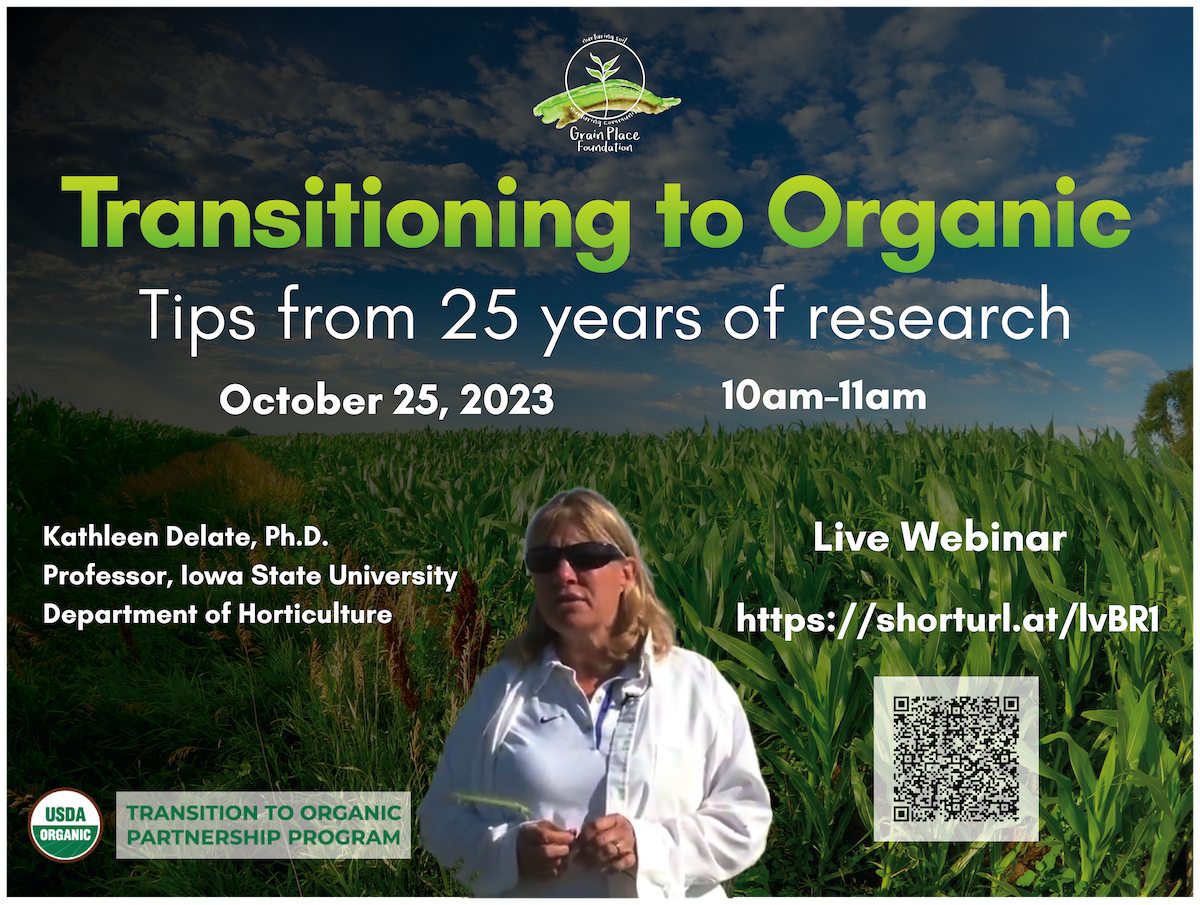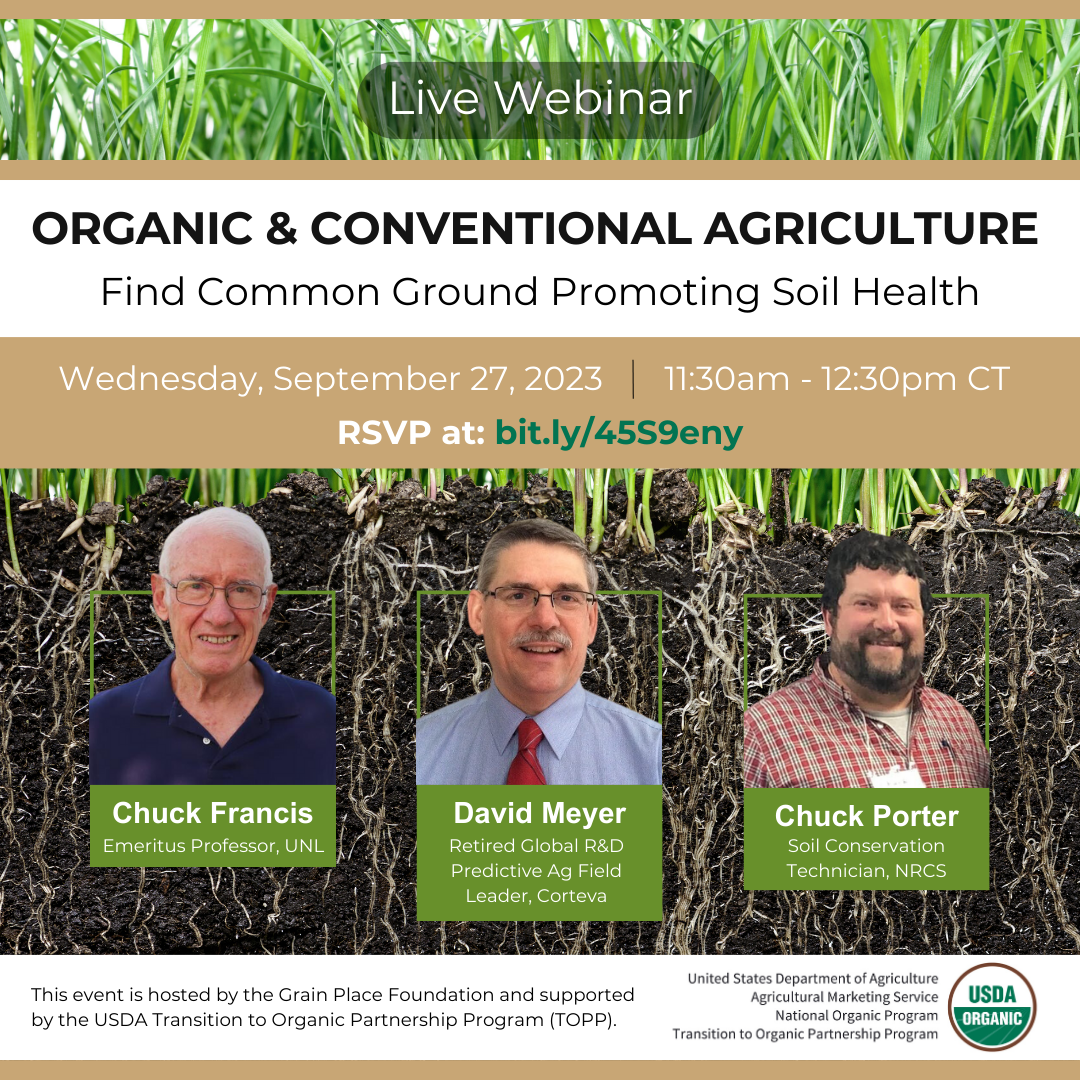Aplicación de los principios de salud del suelo en cultivos en hileras gestionados orgánicamente
Katja Koehler-Cole, Statewide Soil Health Management Extension Educator, Nebraska Extension
Presented by
Matthew Sanderson, Ph.D.
Randall C. Hill Distinguished Professor, Kansas State University
Este programa cuenta con el apoyo del Programa de Asociación y Transición a lo Orgánico del Departamento de Agricultura de Estados Unidos o TOPP. TOPP es un programa de la iniciativa de Transición Orgánica del USDA y es administrado por el Programa Orgánico Nacional del Servicio de Comercialización Agrícola del USDA. Puede encontrar más información sobre TOPP aquí: https://www.grainplacefoundation.org/topp/


Katja Koehler-Cole, Statewide Soil Health Management Extension Educator, Nebraska Extension
¿Alguna vez pensaste hacer la transición a lo orgánico? ¿Ya te decidiste pero no estás seguro de cómo empezar? ¿Quizás estás en el proceso de transición y tienes preguntas?
Si usted (o cualquiera de sus amigos) respondió "si" a alguna de estas preguntas, ¡este seminario web es para ti!
Pasamos una hora hablando con el agricultor orgánico pionero, David Vetter, sobre el proceso de transición a lo orgánico.
Este programa se centrará en pensar y prepararse para la transición a lo orgánico. Para que abordar tantas preguntas como sea posible, se les pide a los participantes a enviarlas con anticipación. Envíe sus preguntas a Allison: avetter@grainplacefoods.com
Este programa cuenta con el apoyo del Programa de Asociación y Transición a lo Orgánico del Departamento de Agricultura de Estados Unidos o TOPP. TOPP es un programa de la iniciativa de Transición Orgánica del USDA y es administrado por el Programa Orgánico Nacional del Servicio de Comercialización Agrícola del USDA. Puede encontrar más información sobre TOPP aquí: https://www.grainplacefoundation.org/topp/


Abundan las diferencias entre las opciones de uso de insumos en la agricultura orgánica y convencional, pero todos coinciden en que tenemos que mejorar la salud del suelo. Únete a nosotros para un seminario web con Chuck Porter (NRCS, Unadilla, NE), David Meyer (Plant Breeder, Corteva, jubilado) y Chuck Francis (Profesor emérito de la UNL) el 27 de septiembre del 2023.
Este seminario web cuenta con el apoyo del Programa de Asociación de Transición a la Agricultura Orgánica (TOPP) del Departamento de Agricultura de los Estados Unidos (USDA). TOPP es un programa de la iniciativa de Transición Orgánica del USDA y es administrado por el Programa Orgánico Nacional (NOP) del Servicio de Comercialización Agrícola (AMS) del USDA.
